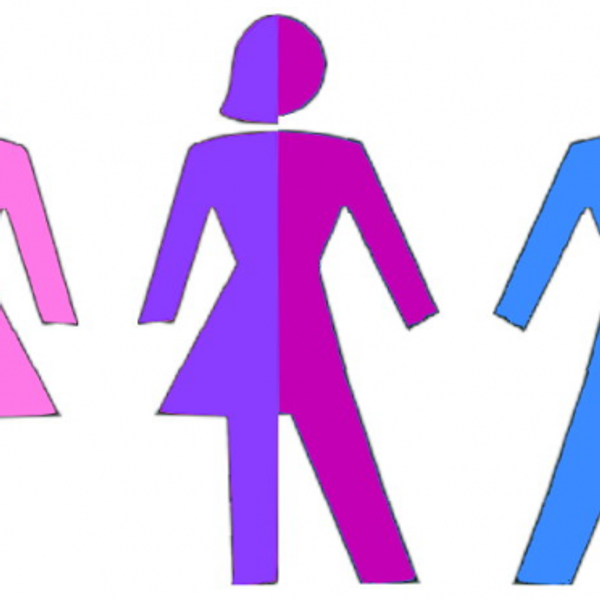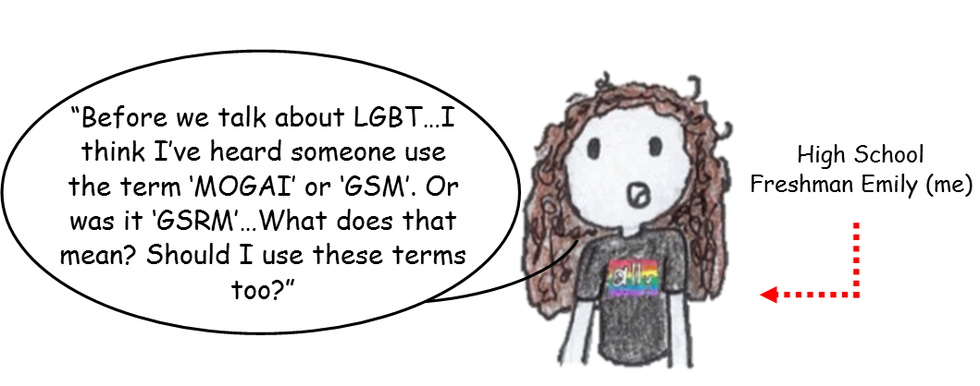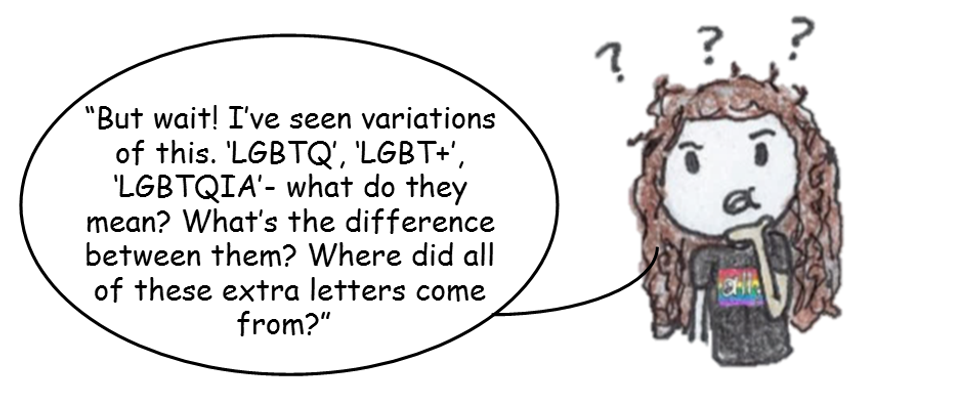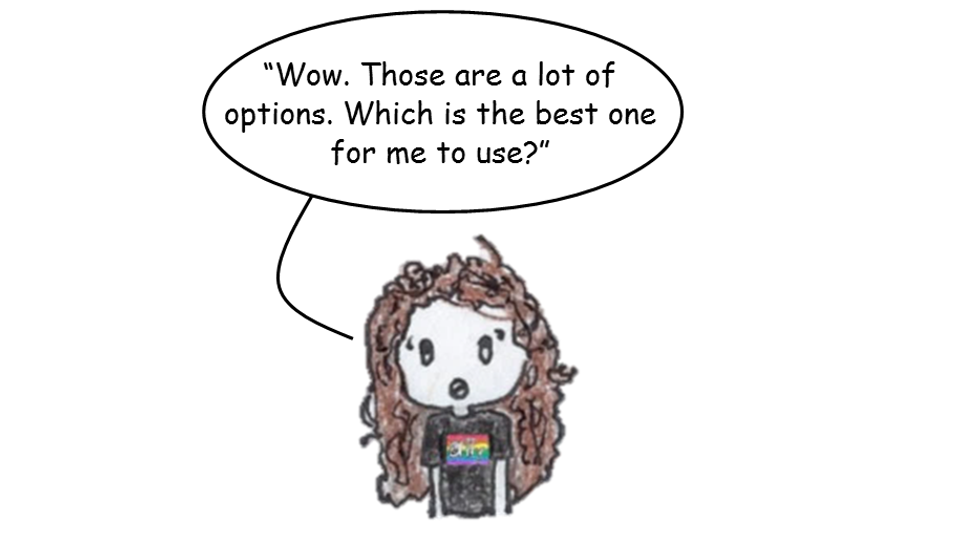Unless you’ve memorized and have been through The Discourse where everyone was discussing the use of the term “LGBT” to define the community, you might have no idea why it’s used to describe the group of people who are not straight and/or not cisgender. Have no fear! Whether you’re an ally to the community, a new member or a member who is unsure, this article is to explain the terms and initialisms that are used to describe the whole of the community.
MOGAI stands for “marginalized orientations, gender alignments, and intersex” while GSM / GSRM stands for “Gender, sexual, and romantic minorities.” These seem like pretty great, encompassing terms to categorize the community. It’s inclusive, accommodates for members of the community that don’t feel comfortable using the word queer. The only problem? The encompassing and inclusive language led to pedophiles and rapists claiming membership to both groups. This turned off a lot of people to the terms, understandably. The LGBT community does not promote pedophilia or rape and stereotypes of the community have long compared members to similar perpetrators, which is harmful and inconsiderate to members of the community who are survivors of similar actions. Long story short, I would not use these terms because of that stigma attached to it.
LGBT stands for “Lesbian, gay, bisexual, trans.” It is used as an encompassing term for the community of people who do not identify as straight and/or “cisgender” (refers to someone who is not transgender).
Because the initial initialism only has four different identities, it can be seen as exclusive. There is a problem within the community about people trying to bar out other members. Having an encompassing initialism that ends up excluding many of the other identities that are a part of the community can foster a lot of hurt feelings. People have also used “LGBT” against people whose identities are not included in that specific set of letters, even though the term is used as encompassment, in order to exclude and devalue their identities and their place in the community. Thus, there are many variations of the initial “LGBT” to encompass other identities.
The “Q” stands for “Queer” or “Questioning.” Queer is a reclaimed slur that is used by some members in the community to refer to the community as a whole, or as an identity to describe their identity. Questioning is a term available to anyone who is questioning their romantic, sexual, or gender identity.
The “I” stands for “Intersex.” As defined by Intersex Society of North America, “‘Intersex’ is a general term used for a variety of conditions in which a person is born with a reproductive or sexual anatomy that doesn't seem to fit the typical definitions of female or male” (www.isna.org). Intersex people are not “hermaphrodites” or “mutants”, and they are not “deformed.”
The “A” stands for “Asexual,” “Aromantic,” and sometimes “Agender.” Asexual means you don’t experience or form sexual attraction to people. It is a spectrum of differing degrees of sexual attraction and sex drive. Aromantic means you don’t experience or form romantic attraction to people. It is also a spectrum of differing degrees of romantic attraction. “Agender” is a non-binary and/or transgender identity in which a person does not see themselves as having a gender.
There are other identities not listed. They would either be under the encompassing umbrella term that “LGBT” is, or would go under the occasionally tacked on plus sign. These identities are:
Pansexual- gender has no role in forming romantic or sexual attraction.
Polysexual- only forms romantic or sexual attraction to certain genders.
Demisexual- a common asexual-spectrum identity in which people can only form sexual attraction after a strong emotional connection has been established.
Any other trans or non-binary identities that people do not feel comfortable sorting under the “T” in the initialism.
There are also variants with each initial to create an encompassing term or name to refer to the community. People have rearranged the letters to spell out “QUILTBAG”; Queer/questioning, intersex, lesbian, trans, bisexual, asexual and aromantic, gay; simply said “Alphabet soup” because of the sheer number of initials; or used the term “queer” to encompass the community as a whole.
Every member of the community is going to have a different opinion on what term to use to describe the group as a whole. In my opinion, I would go with “LGBTQ community” or just “LGBT community.”
Even with the problems that term has and how it’s been used to gatekeep people, people know what you are talking about when it’s used. It is an encompassing term already. And it’s a lot harder for some people to be able to recite the letters when talking or presenting and educating other people about the community. If it’s hindering discussion, there’s a problem there logistically speaking.
It’s also hard to have all of these letters memorized, especially if you’re new to the community or you don’t have the best memory. If we hold people to standards like knowing every identity under the sea, it places immense pressure on people who have just begun identifying in the community, disabled people, and people trying to support and help the community. That’s not fair.
It’s also a lot more preferable to people within the community if people who are outside members of the community do not use the word “queer.” Like mentioned before, queer is a reclaimed slur, but some members within the community do not feel comfortable hearing it or using it at all, especially when it is used to describe them. Other members are okay with using it amongst themselves but are not when people who aren’t “queer” or LGBT use it. In general, it’s a good idea to avoid its usage unless it’s someone’s specific identity or you are in a group that is okay with its use.
























